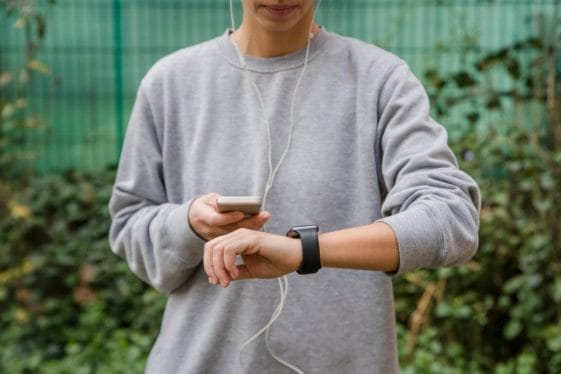
Sobriety Tools and Apps For Business Owners
As a healing and leadership coach, I’ve seen how addiction impacts business leaders and their companies. When you’re not constantly thinking about your next fix, you can get a lot more done. I know this from my own experience as a recovering alcoholic and sex addict.
That’s why it’s important to talk about how technology can help with addiction recovery. You don’t have to do it all alone or rush to a local meeting. Apps and online resources make it easier for busy professionals to get support and stay on track with their recovery goals.
In an earlier article, I wrote about general practices to help you stay sober. However, in this article, we’ll explore some of the best tools available today and how they can help leaders and business owners stay in recovery. Whether you’re in recovery yourself or supporting someone else, knowing about these tools can make a big difference.
First and foremost, let’s discuss why using an app or some tech tool might help you on your recovery journey.
Why Do You Need an App or Tool to Stay Sober?

Addiction can affect anyone, even successful business leaders and entrepreneurs. The stress of running a company can sometimes lead to unhealthy habits. Staying sober is important for making good decisions and being a great leader.
Using sobriety tools and technology can help leaders:
- Handle stress and triggers better
- Stay on track with their recovery goals
- Get support whenever they need it
- Set a good example for their team
- Improve their overall health and well-being
Just to be clear, technology isn’t a substitute for talking to real people. We’re naturally meant to learn from listening to and interacting with others. Technology is meant to help you when you can’t reach out to someone. For example, instead of calling your sponsor at 2am, you can use your app to remind you why staying sober is important. Now, let’s dive into the science and see why using an app can be helpful.
Using sobriety tools regularly can help change the brain’s reward system. By doing positive, recovery-focused activities often, you can build new brain connections that support staying sober.
Denise G Lee Tweet
The Science Behind Digital Sobriety Tools
We’re still learning about digital sobriety tools, but early research looks hopeful. Here’s what we know so far:
Better Commitment to Sobriety
A study published in the Journal of Medical Internet Research found that people who used recovery-focused smartphone apps were more likely to remain engaged in treatment programs.This increased engagement is crucial because consistent participation in recovery activities is one of the strongest predictors of long-term sobriety success.
Another study looked at how a smartphone app can help people recover from alcohol problems. This study was published in JAMA Psychiatry and found that people who used the app did better than those who only got regular treatment.
Here are some key points from the study:
- Staying Sober: About 72% of people using the app stayed sober for a year, while only 52% of those who didn’t use the app stayed sober.
- Fewer Drinking Days: People using the app had fewer days of heavy drinking and felt less urge to drink.
- Longer Sobriety: Users of the app were more likely to stay sober continuously (57% vs. 37%) and took longer to have their first heavy drinking day.
The researchers believe that the app provided helpful support and resources that made it easier for people to stay sober, especially during tough times. Having access to the app 24/7 allowed users to get help whenever they needed it, which likely contributed to its success in helping people recover from alcohol use.
Neuroplasticity and Habit Formation
Using sobriety tools regularly can help change the brain’s reward system. By doing positive, recovery-focused activities often, you can build new brain connections that support staying sober.
This idea is based on neuroplasticity, which means the brain can create new pathways. Just like addiction creates strong pathways in the brain, engaging in recovery activities can build healthier pathways.
Now, let’s look at some of the best sobriety tools available today.
Use apps to record your triggers, moods, and cravings. This can help you see patterns and find better ways to handle tough times.
Denise G Lee Tweet
Smartphone Apps for Recovery
One of the easiest sobriety tools to use is a smartphone app. There are many apps made to help people stay sober. Here are a few popular ones:

Tracking and Accountability Apps
Apps like “I Am Sober” and “Sober Time” let you track how many days you’ve been sober, set goals, and earn rewards for your progress. These apps can motivate you and give you a sense of achievement as you move forward in your recovery.
These apps also let you record things like triggers, moods, and cravings. This can help you see patterns and find better ways to handle tough times. For example, you might see that you have stronger cravings on Friday nights after a stressful week. Knowing this, you can plan activities or meetings to help you through those tough times.
Meditation and Mindfulness Apps
Managing stress is important for staying sober. Apps like Headspace and Calm offer guided meditations and breathing exercises to help reduce anxiety and improve your overall well-being. Practicing mindfulness regularly can be really helpful, especially for busy leaders with lots of stress.
These apps often have short meditations that only take a few minutes. This makes them easy to fit into a busy day. You could start your day with a 5-minute meditation to feel good, or use a quick breathing exercise between meetings to stay calm.
Online Support Communities

Apps like Sober Grid and SoberTool help you connect with online support groups. These apps let you talk with other people who are also in recovery, find local meetings, and get help anytime you need it. For leaders who might not want to go to in-person meetings, these online communities can be a big help.
These apps often have features like:
- Anonymous chat rooms
- Private messages with others
- Online support group meetings
- Libraries with helpful articles and videos
- Lists of local treatment providers and meetings
Having this kind of support readily available can be really useful, especially when you’re feeling tempted or stressed.
Virtual Reality in Addiction Treatment

Virtual reality (VR) is a new and exciting tool for addiction recovery. Although it’s still developing, VR tools for sobriety look promising for helping people manage cravings and learn coping skills.
Exposure Therapy
VR can create realistic scenes that trigger cravings, allowing people to practice handling these situations in a safe environment. For example, someone recovering from alcohol addiction might use VR to walk through a virtual bar without drinking.
This type of therapy helps people get used to their triggers and feel more confident in resisting cravings. It’s like a practice run for real-life situations but without the risk of relapse.
Relaxation and Stress Relief
Some VR programs offer calming, immersive environments to help reduce stress and anxiety. This can be very useful for leaders who need a quick way to relax during a busy day. Imagine taking a 5-minute “virtual vacation” to a peaceful beach or a quiet forest right from your office. This quick stress relief can be a powerful tool for staying sober and improving overall well-being.
Wearable Devices for Recovery Support

Wearable technology is another helpful tool for staying sober. These devices can give you real-time information and support throughout the day.
Biosensor Wristbands
Some wearable devices can measure stress by looking at your skin temperature and heart rate. If the device notices you’re getting stressed, it can alert you and suggest ways to calm down. For example, if your wristband sees that your heart rate is going up and your skin is getting warmer (signs of stress), it might gently vibrate and suggest you take deep breaths or step away from your desk for a moment.
Smart Watches with Recovery Apps
Many smartwatches now work with apps designed to support sobriety. This helps you easily track your progress, get quick access to support, and receive reminders throughout the day. For example, you can set your smartwatch to give you a gentle reminder when you usually feel cravings, encouraging you to stick to your sobriety goals and suggesting healthy activities to do instead.
Telehealth and Online Therapy
Telehealth has made it easier to get professional help from anywhere, which is great for busy leaders who find it hard to fit in-person therapy into their schedules.

Video Counseling
Many addiction treatment providers now offer video counseling. This means you can talk to a therapist or join a support group from your home or office. Video counseling can be as effective as in-person sessions and saves you travel time, making it easier to keep up with regular appointments, which is key for long-term recovery.
Text-Based Therapy
Services like TalkSpace and BetterHelp offer text-based therapy, where you can message a counselor anytime. This is useful for getting quick support during stressful moments.
With text-based therapy, you can send messages to your therapist whenever you need help, and they’ll respond within a day. This is great for dealing with thoughts and feelings as they come up.
AI-Powered Chatbots for Recovery
Artificial intelligence (AI) is also starting to help in addiction recovery. AI chatbots can offer support and guidance around the clock.
Personalized Check-Ins
Some chatbots learn about your triggers and habits. They can then send you helpful messages and suggestions throughout the day. For example, if the chatbot knows you usually crave in the evening, it might send you a reminder and coping tips at that time.
Immediate Crisis Support
When you’re feeling strong cravings or emotional distress, AI chatbots can provide instant support and coping strategies. While they can’t replace human interaction, they’re useful when other resources aren’t available.
These chatbots can guide you through breathing exercises, help you tackle negative thoughts, or connect you with emergency support if needed.
Encourage all employees to use stress-management tools like meditation apps. This helps everyone stay well and can prevent substance abuse issues before they start.
Denise G Lee Tweet
Using Sobriety Tools in Your Life and Business
As a leader, using sobriety tools can positively impact your whole organization. Here are some simple ways to start:

Lead by Example
Be honest about how sobriety tools help you. This can encourage others to seek help if they need it. You might share in a team meeting how a meditation app has reduced your stress, or mention a sobriety tracking app you use to stay on track with your health goals.
Offer Resources to Your Team
Think about including recovery-focused apps or online therapy in your employee wellness program. This shows you care about supporting mental health and recovery. You could provide subscriptions to meditation apps or partner with an online therapy service to offer confidential support to your team.
Create a Culture of Wellbeing
Encourage all employees to use stress-management tools like meditation apps. This helps everyone stay well and can prevent substance abuse issues before they start. You could set up a company-wide challenge to meditate for 5 minutes a day for a month, or create a quiet room where people can relax and use wellness apps. Also, read this article for more tips on promoting wellness in your workspace.
Stay Informed
Keep up with new developments in sobriety tools and addiction recovery. This helps you make good choices about new technologies for your personal life and business. Consider attending conferences or webinars on recovery and workplace wellness, or subscribe to relevant journals and newsletters.
Talking about staying informed, here are the tools and resources currently available. Next, let’s discuss how future technology can help with sobriety.

The Future of Sobriety Tools
As technology keeps improving, we’ll likely see even more helpful tools for sobriety. Here’s what could be coming.
Personalized AI Coaches
Future AI might offer customized recovery coaching that adjusts to your specific needs, likes, and progress.
Advanced Biofeedback Devices
New wearable devices could detect not just stress, but also specific cravings or feelings linked to relapse risk.
Virtual Reality Support Groups
With better VR technology, we might have fully immersive virtual support group meetings, making it feel like you’re there in person, no matter where you are.
Integration with Smart Home Technology
Imagine a smart home system that adjusts lighting, plays calming music, or starts a guided meditation when it notices you’re feeling stressed or craving.
Digital tools should support, not replace, real human connections and professional help. While apps and online resources are useful, don’t rely on them as your only support. Keep up with in-person connections and professional relationships.
Denise G Lee Tweet
Potential Challenges and Considerations
While sobriety tools can be very helpful, there are a few things to watch out for:

Privacy Concerns
Make sure any apps or devices you use protect your privacy, especially if you’re sharing personal information. Check the privacy policies of apps and be careful about what you share. Some people use these tools under a fake name to keep their information private.
Overreliance on Technology
Digital tools should support, not replace, real human connections and professional help. While apps and online resources are useful, don’t rely on them as your only support. Keep up with in-person connections and professional relationships.
Tech Addiction
Be careful not to become too dependent on technology. It’s possible to get caught up in using apps and devices, which can become its own kind of addiction. Set limits on how often you use sobriety tools. For example, you might decide to check your sobriety app just once a day instead of constantly.
While new technology is exciting to use, we should also be aware of its limitations and how it might affect our well-being. Next, I’ll share my final thoughts.
Final Thoughts
Sobriety tools are always getting better, offering new ways for leaders and entrepreneurs to support their recovery. By using these tools, you can strengthen your sobriety, improve your well-being, and become a better leader. Remember, recovery is personal—what works for one person might not work for another. It’s important to find the tools and support that suit your needs and lifestyle.
Be patient and open to trying different tools and methods. It may take some time to find what works best for you. Also, tech tools work best when used with professional support, connections with others in recovery, and efforts to grow personally.
Which app or device has helped you maintain your sobriety? I’d love to hear from you. Click here to share your experience with me.
If you want to learn more about using sobriety tools in your life and leadership, I’m here to help. As an entrepreneur coach, I can help you create a plan to stay sober and grow your business.
Also, check out my podcast for tips on addiction recovery, leadership, and personal growth, with practical advice and expert insights.



